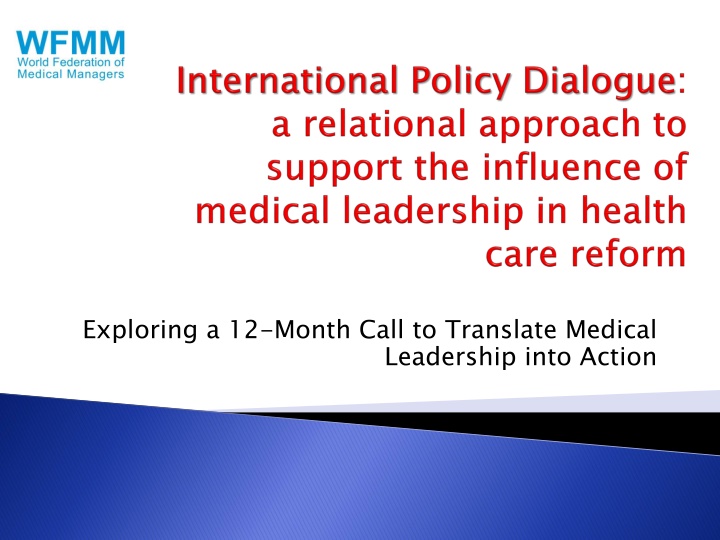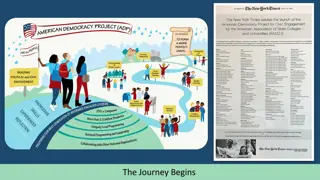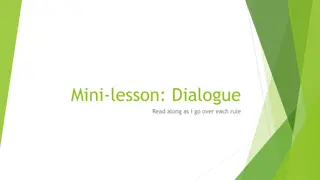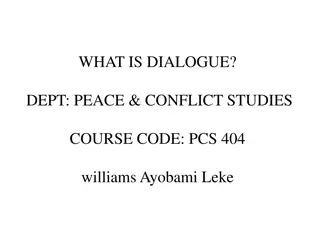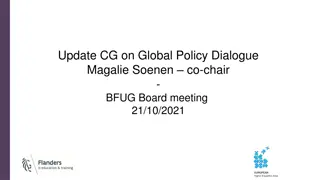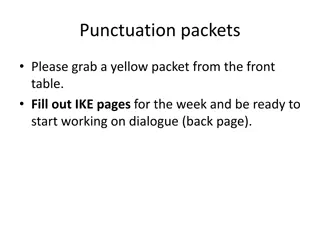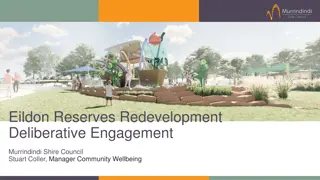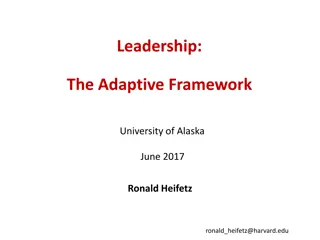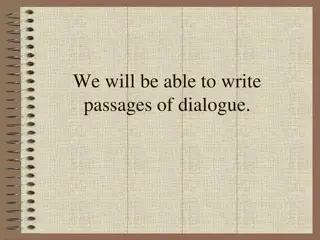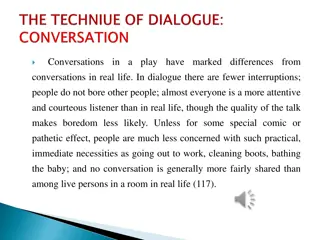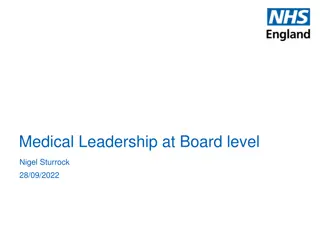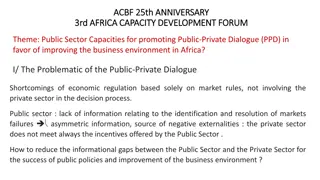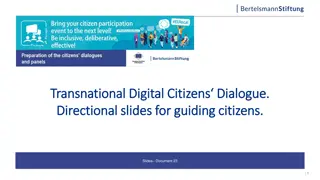Enhancing Medical Leadership Through Deliberative Dialogue
Explore a 12-month initiative to translate medical leadership into action through collaborative efforts, capacity building, and harnessing collective knowledge. Discover the power of Deliberative Dialogue in fostering understanding and co-creating meaning to drive collective action in health reform.
Download Presentation

Please find below an Image/Link to download the presentation.
The content on the website is provided AS IS for your information and personal use only. It may not be sold, licensed, or shared on other websites without obtaining consent from the author.If you encounter any issues during the download, it is possible that the publisher has removed the file from their server.
You are allowed to download the files provided on this website for personal or commercial use, subject to the condition that they are used lawfully. All files are the property of their respective owners.
The content on the website is provided AS IS for your information and personal use only. It may not be sold, licensed, or shared on other websites without obtaining consent from the author.
E N D
Presentation Transcript
Exploring a 12-Month Call to Translate Medical Leadership into Action
Explore new ways of acting together to: Grow medical leadership member countries Enhance the capacity of medical leaders influence health reform in our respective jurisdictions medical leadership in capacity of medical leaders to Mining our knowledge...
Demonstrate the power Introduce Deliberative Dialogue harnesses collective knowledge for action. Gain input into a potential activity to stimulate collective action health reform. power of dialogue. Deliberative Dialogue process that collective action on issues of
Conversations often are characterized by advocacy and debate whereby one person tries to impose his or her ideas on others, or win the argument. Dialogue is characterized by open and honest inquiry asking questions of clarification and understanding, rather than advocating for one s own point of view. There is a true desire to co-create understanding and meaning, by building on each other s contributions.
Key skills of dialogue Bertha Fries
McMaster University Health forum Deliberative Dialogue Dialogues consist of a multi-stage process that aim to ensure relevant evidence on pressing health concerns fuel action for improving health outcomes through collective problem solving. Deliberative Bulletin of the World Health Organization: Bulletin of the World Health Organization: Dialogue Process Evidence briefs and deliberative dialogues: perceptions and intentions to act on what was learnt. Evidence briefs and deliberative dialogues: perceptions and intentions to act on what was learnt. pressing health concerns is used to Kaelan A Moata, John N Lavis Fadi El-Jardalid, Tomas Pantoja (2013). John N Lavisb, Sarah J Clancyc, lavisj@mcmaster.ca
Evidence-informed Systems perspective Structured, real dialogue of main actors make a difference Commitment to action main actors who can
812 m. process Identification of topic that needs collective action. Secretariat Issue Brief review of literature and key informants) Stakeholder group dialogue (full day) Summary report and KM strategies Issue Brief (Systematic
No-one has all the expertise to solve the issues we face Wicked issues in health care Trans-disciplinary problems (Max- Neef) Require knowledge arbitrage and collective action Political science Business Social Sciences Medicine As well as difference professional world views...
Is dialogue session often employed in your organization? Why or why not? dialogue and the practices of dialogue as described in this 1. Consider the challenges of health reform kinds of knowledge disciplines understand, and resolve? challenges of health reform in your country. What knowledge disciplines do those challenges require to 2. Does the idea of a Deliberative Dialogue construct have the potential of helping physicians in your country shape health reform at a policy level? Is this a process you would champion in your jurisdiction? Deliberative Dialogue or a version of the same 3. If you were advising the WFMM strategic planning group ( meeting tomorrow), as to whether or not to consider building a DD into their future strategies, what would you say? How might they do it? WFMM strategic planning group (that is 4.
Thank you Graham Dickson, gdickson@royalroads.ca
